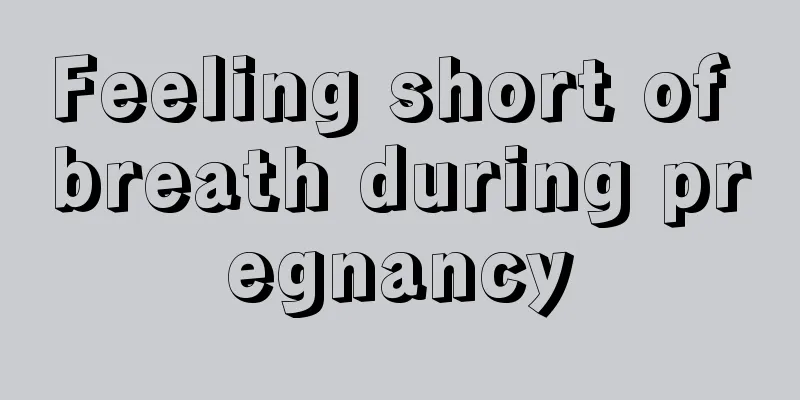What to do if you don’t have your period after 40

|
If a 40-year-old woman does not have her period, she should pay attention to it. There are many reasons for not having a period. It may be caused by gynecological diseases or it may be caused by the high pressure of work and life. In addition, you should also be alert to the causes of premature ovarian failure. If you do not pay attention to the maintenance of the ovaries, it may lead to premature ovarian decline, which has a greater impact on women's health. What to do if you don’t have your period after 40 1. Etiological treatment When a woman gives birth, the estrogen and progesterone cycles in her blood change and participate in coordinating the body's physiological activities, which become important factors in stabilizing the internal environment of the female body. After menopause, the continued low levels of estrogen and progesterone will cause physical and mental dysfunction in women. This series of diseases will affect women's physical health. These estrogen deficiencies can lead to health problems and must be treated actively. 2. Physiological supplementation The purpose is to enable the organs in postmenopausal women to function physiologically as much as possible to maintain the health of the body, not to restore their endocrine conditions to the level of the ovarian cycle during the reproductive period, that is, physiological supplementation. Physiological supplementation mostly advocates the use of natural estrogens, which have the chemical structures of estrone, estradiol and estriol. The dosage should be controlled so that the blood E2 concentration is around 220pmol/L, or within the equivalent estrogen activity range, and should not exceed 550pmol/L. Exceeding this level may lead to an increase in side effects. Since the estrogen and progesterone in the contraceptive are in large doses, highly active, and have a non-physiological chemical structure, they are not suitable for physiological supplementation in HRT. 3. During the menopausal transition period, HRT should focus on supplementing progesterone During the menopausal transition period, the growth and development disorders of follicles gradually increase, and finally the functional follicles disappear from the ovaries. The corresponding changes in estrogen and progesterone during this period are: first, there is a relative deficiency of progesterone, and then deficiency; estrogen deficiency changes cyclically, although there may be a transient relative excess, the total amount gradually decreases, and finally to deficiency, resulting in relatively excessive or single unopposed estrogen stimulation for a long time. Some women may experience varying degrees of proliferative changes in the endometrium, and even malignant changes. Therefore, during this period, the main focus should be cyclical progesterone supplementation to regulate the menstrual cycle and prevent endometrial proliferative lesions. As estrogen becomes gradually deficient, estrogen and other hormones are supplemented at the same time. It is recommended that female friends should drink and consume fish, shrimp and other foods regularly, exercise regularly, and promote a healthy and beneficial lifestyle, especially quitting smoking in public places and at home, and eliminating passive smoking. |
<<: Why do girls have lower abdominal pain?
>>: Can I have sex on the fifth day of my period?
Recommend
What are the benefits of eating kiwi fruit during early pregnancy?
Women in their early stages of pregnancy pay spec...
Some people's blood pressure rises while others' falls in summer. How should antihypertensive medications be adjusted and can they be stopped?
Recently, many friends' blood pressure has fl...
What to do if endocrine disorders cause amenorrhea? Diet therapy can help
There are many reasons for amenorrhea. First of a...
Ovarian solid echo
Solid ovarian echoes indicate that lesions may ha...
What is the reason for snot-like mucus to flow from the lower body?
As we all know, secretions appear in many parts o...
When is it easy for hibiscus to take root by cuttings? How can hibiscus take root by cuttings?
Hibiscus is a common flower in daily life. Becaus...
Why does a woman feel pain under her chest?
Female friends are often very concerned about bre...
The efficacy and consumption of maca for women
What are the benefits and edible methods of maca ...
Do you know "Golfer's Elbow"? It may sound strange, but it may be happening to you!
1. What is "Golfer's Elbow"? "...
[Medical Q&A] What diseases can percutaneous endoscopic lumbar discectomy be used to treat?
Planner: Chinese Medical Association Reviewer: Sh...
What to do if you have a conflict with your boss? How to avoid conflicts in the workplace
It is inevitable to have conflicts with leaders o...
Vaginitis incidence
In recent years, the incidence of vaginitis is re...
Leucorrhea like paste
Leucorrhea is mainly some common substances in va...
How long does it hurt for a girl's first time?
Girls always feel very shy when they have sex for...



![[Medical Q&A] If I have myasthenia gravis and I am worried about the side effects of hormones, should I not use hormones?](/upload/images/67f0f324df9a4.webp)





